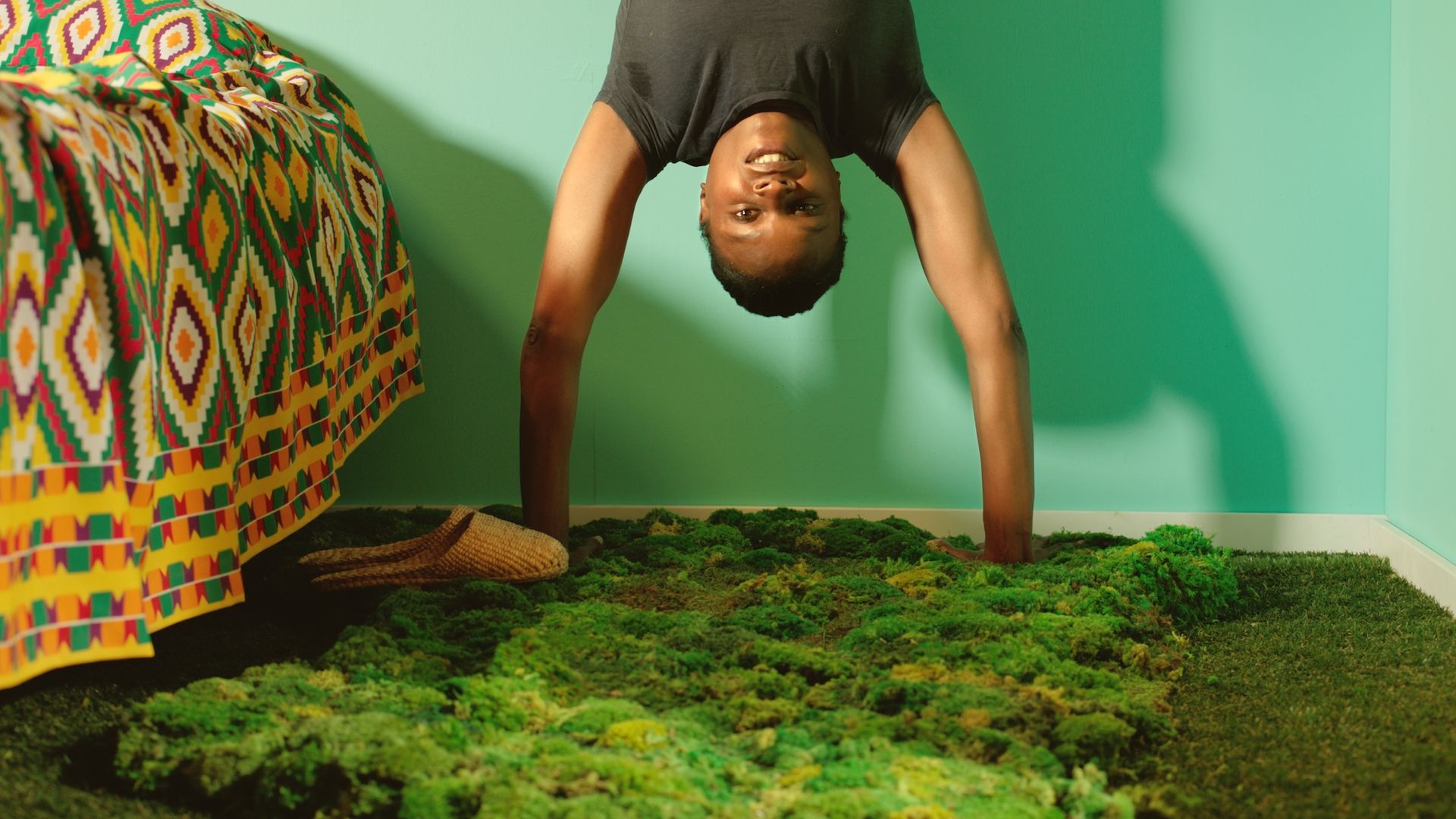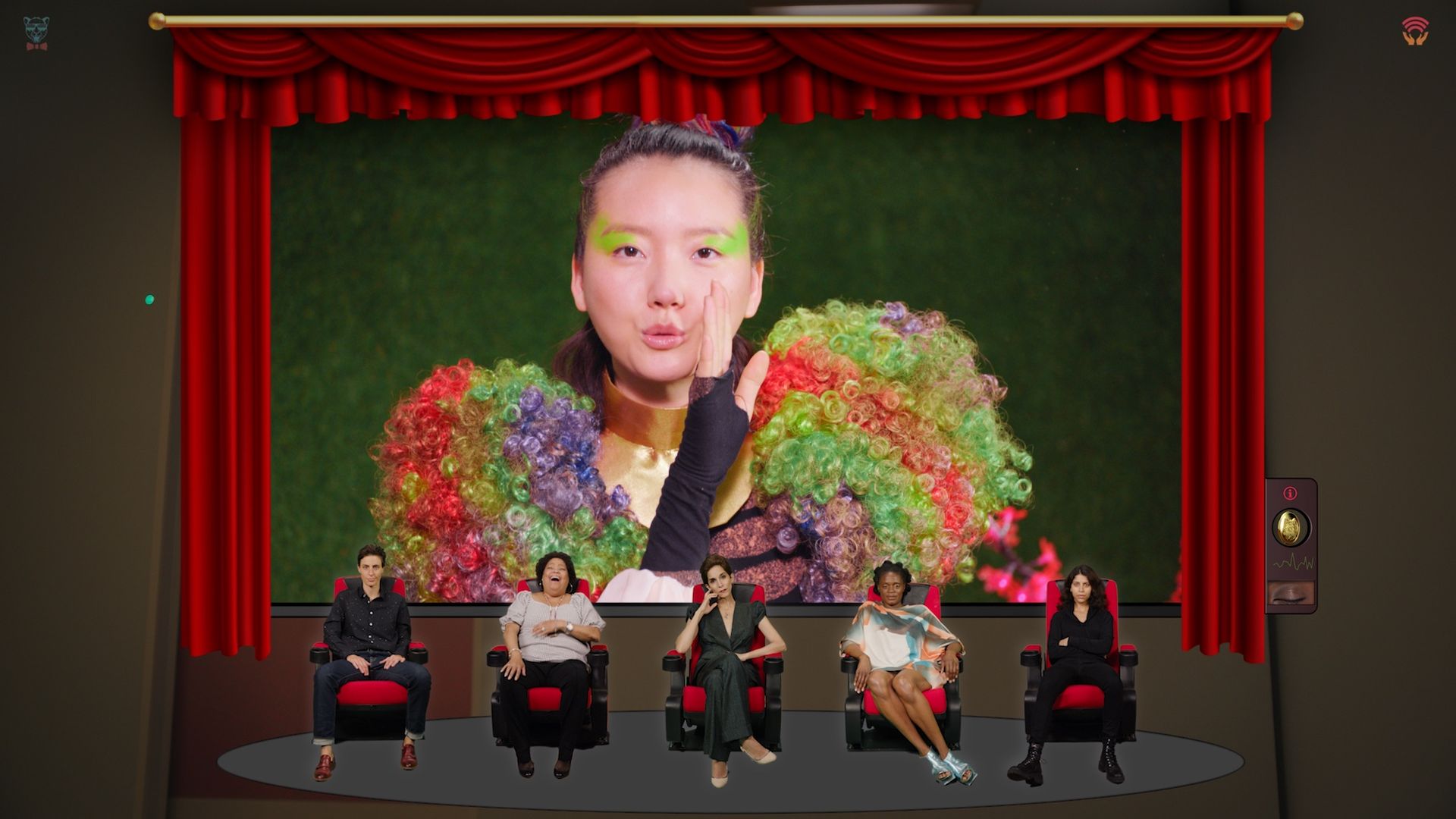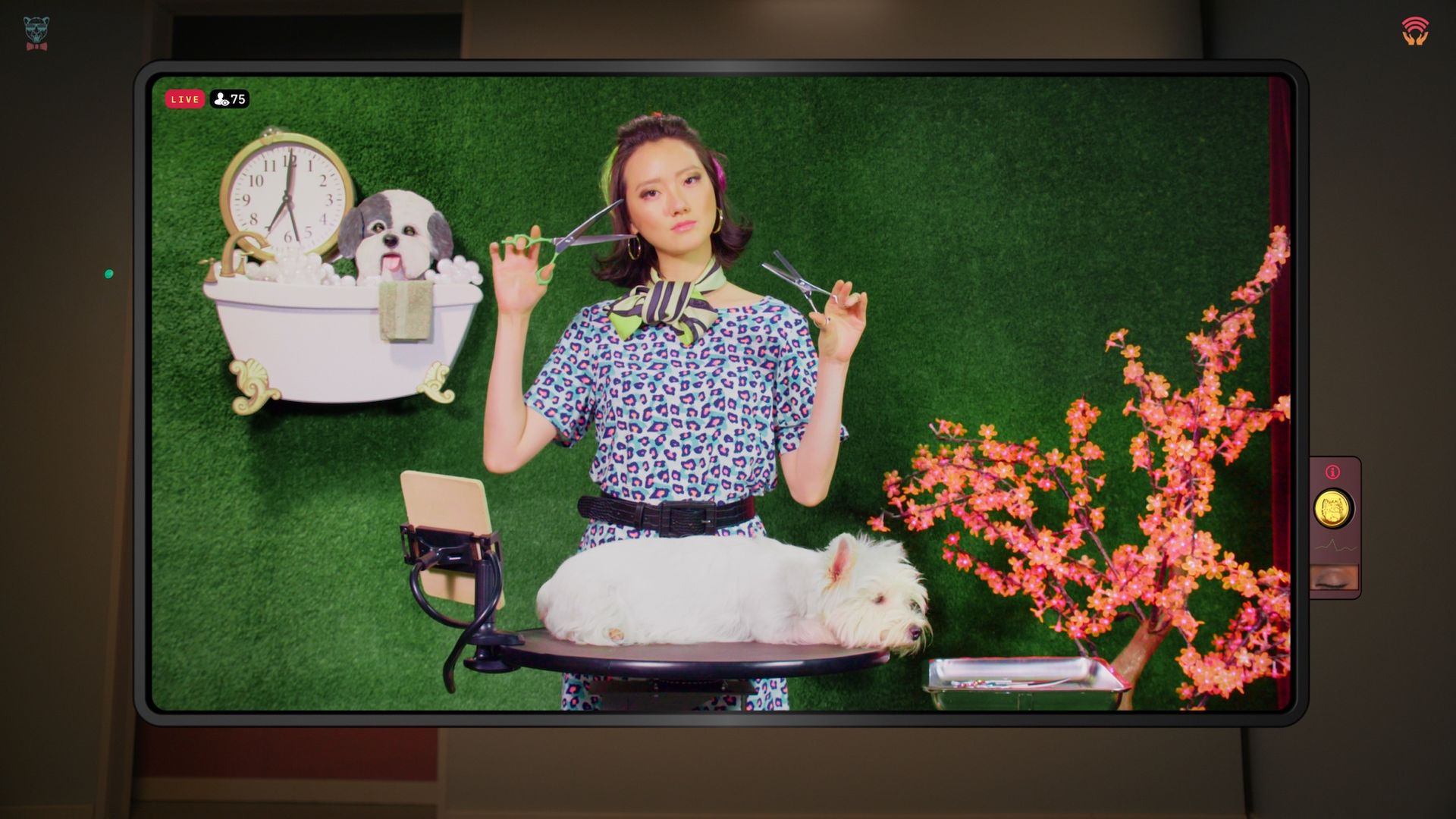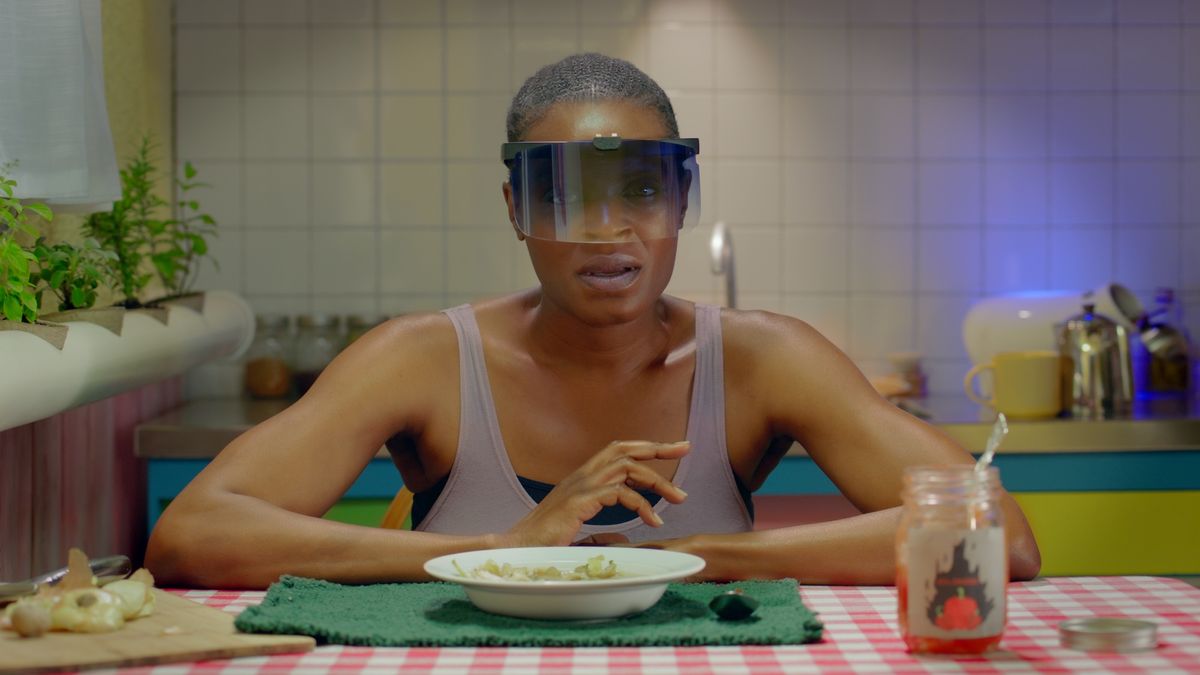Mika Rottenberg’s interest in global interconnectivity takes on a chirpy, accessible gloss with her first feature-length film Remote, written and co-directed by Mahyad Tousi and conceived during the height of the Covid-19 pandemic. Rolling out this fall at museums as well as the experimentally oriented Currents sidebar of the New York Film Festival, Remote explores the city of the future—one built atop the digital boomtown to which lockdowns hastened our migration.
The film is set in 2039, in an apartment in what is gradually revealed to be Kuala Lumpur, though it could be anywhere. Delivery drones buzz outside Unoaku’s (Okwui Okpokwasili) high-rise window. Much of the film simply describes her daily rituals: she awakes to the Ranz des Vaches of the William Tell Overture, practices yoga, dons a virtual reality (VR) headset to work remotely and claps for carers in the evening. The apartment is bright and intentional, with cheery wallpaper, a living moss carpet managed by a smart watering system and an in-unit hydroponic garden that provides much of her diet. Even the food is colourful—a matcha smoothie, carrot soup.

Mika Rottenberg and Mahyad Tousi, Remote (film still), 2022. © Mika Rottenberg and Mahyad Tousi. Courtesy the artists and Hauser & Wirth
Performance artist Okpokwasili is a dancer, whose sinewy movements suggest a healthful self-discipline that begins to break down as Unoaku succumbs to the distractions of her digital productivity tools. The discrete segments of her day begin to bleed into each other once she develops a parasocial relationship with Eunji and Soju, a Korean livestreamer and her adorable Westie.
Rottenberg and Tousi have fun devising both Eunji’s (Joony Kim) nightly streams, which incorporate ASMR, fan contests and other conventions, and the audiovisually dense virtual interface, with chat sidebars, visualisations and user avatars with a large library of motion-captured gestures. (We see the screen in handheld shots from Unoaku’s point of view, a VR frame-within-the-frame that stays fixed in place even as the apartment beyond it seems to sway with the movements of her head. When the picture blinks off, the apartment seems shockingly empty.) Remote draws out laughs of recognition with an exaggerated simulacrum of digital platforms and behaviours; as Unoaku clicks through her home screen and spends her reward tokens, the film also evokes the ruptured attentional rhythm of watching someone else navigate digital flow.

Mika Rottenberg and Mahyad Tousi, Remote (film still), 2022. © Mika Rottenberg and Mahyad Tousi. Courtesy the artists and Hauser & Wirth
Unoaku is also drawn into a digital-epistemological mystery: the second hand on Eunji’s goofy novelty clock seems to be running backwards (time has no meaning in a pandemic!), but only a few regular viewers can see it. As they and Unoaku discuss the mystery through simultaneously translated chat in Watch Party mode, we get glimpses of Eunji's fans’ living spaces around the world. (The film was shot at Rottenberg’s studio and other interiors in the Hudson Valley and New York City.) Though everyone has the same combination speech-enabled VR visor and detachable handset, more familiar analogue clutter clues us to the idea that Unoaku’ future-perfect lifestyle, with all its clever and functional green design ideas,is just one rung on the class ladder.
The deepening mystery of the clock, a Lynchian blend of surrealistic kitsch, ominous digital crackling sounds and narrative wormholes eventually draw this online community closer to some form of physical communion. If Remote sometimes feels, for a fiction feature, frustratingly limited in its ability to world-build beyond the boundaries of the domestic space and digital metaverse, these are frustrations the film shares.

Mika Rottenberg and Mahyad Tousi, Remote (film still), 2022. © Mika Rottenberg and Mahyad Tousi. Courtesy the artists and Hauser & Wirth
- Remote, directed by Mika Rottenberg and Mahyad Tousi, plays at the New York Film Festival on 12 October, 13 October and 15 October.


